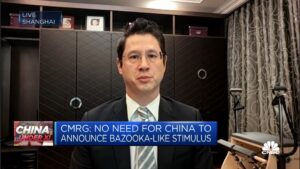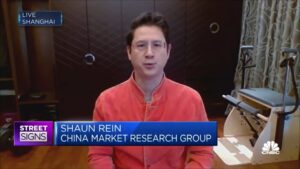Is China having a middle class? Yes, it has, but how large is it and is it a useful group to target if you want to sell your products on the China market? Leading opinion leaders on China differ fundamentally about this issue, and it is about time to put those differences in the limelight. Here the arguments by
+Helen Wang ,
+Shaun Rein ,
+Wei Gu and Tom Doctoroff.
Initially,
following Weber, the middle class was the group of people between the
working class and the upper class. But especially in the US much of the working class started to consider themselves also to be middle class too, and sometimes for good reasons. But it has made the label 'middle class' a difficult one. (A thorough overview of the historical development of the definition
here at Wikipedia .)
Two schools of thought exist in this China debate. One group sees the existence of a Chinese middle class as a no-brainer. While the Chinese middle class might be defined in different economic terms than the US middle class, some estimate it already to be as high as 600 million.
A second school disputes that assumption; they say money can be made at the rich and ultra-rich in China, but the middle class is at best a very thin, too thin layer between those rich and the majority of relatively poor. And even worse: China's focus on improving minimum wages for the working class, and less at improving the position of the middle class.
In the middle is
Evan Osnos who uses a OESO definition for the middle class
in The New Yorker:
A decade later, Chinese politics have not achieved that goal. The Chinese middle class— defined by the Organization for Economic Cooperation and Development as those with the means to make spending decisions beyond just subsistence—is almost certainly growing: it is now about ten per cent of China’s population, and on pace to be forty per cent by 2020. But when it comes to politics, the Chinese government risks losing the support of the middle class.
Using that definition still does not mean the Chinese middle class can buy the same products as their US counterparts, even though the costs of living in China's larger cities have matured over the past decade, and move upward even more.
The debate is both financial and political. Defenders of the middle-class theory in part looked mainly at financial criteria for the middle class in China compared to the US because (at least in the past) the costs of living in China were lower than in the US, they argued. Their opponents believe you should look also at the ambitions of the Chinese consumers. Unlike the average American consumers, Chinese do not want to be middle class. They want to be filthy rich, even when they know they might not be able to achieve that ambition all.
Whether or not there is a substantial middle class has profound consequences for marketing efforts by both Chinese and foreign companies in China. When you are selling
Lamborghini's, private airplanes or yachts, the middle class is not interesting. But how looks the market for other products?
Let's give the word to the two different schools.
The Middle Class School
JWT's Tom Doctoroff clearly believes in a large and vibrant middle class, as he states in the first half of this clip:
On his side, we also find
Helen Wang, author of the bestseller "
The Chinese Dream: The Rise of the World's Largest Middle Class and What It Means to You
.
In Forbes she tried to start a debate on defining the middle class, and is more optimistic than Evan Osnos:
In The Chinese Dream, I use a combination of these definitions: urban professionals and entrepreneurs from all walks of life, who have college degrees and earn an annual income from $10,000 to $60,000. Over three hundred million people, or about 25 percent of China’s population, met these criteria in 2010.




